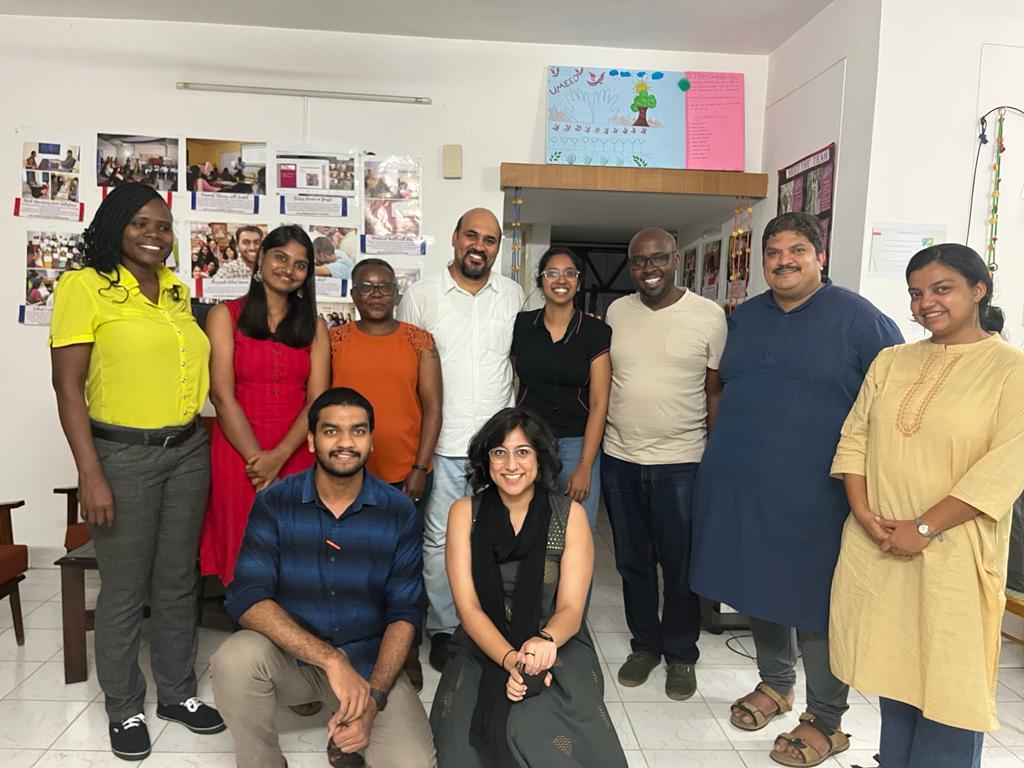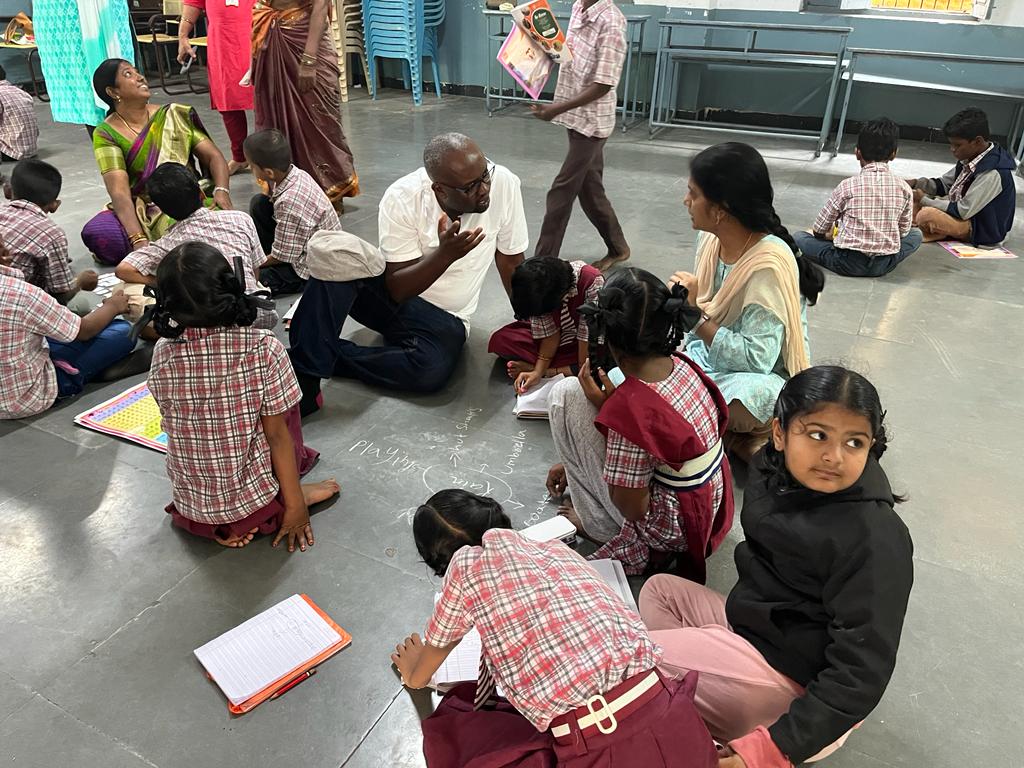This is the second of a three-part blog series, capturing the experiences and reflections of members of our team who participated in a learning exchange trip to Hyderabad, India. The trip was facilitated by Global School Leaders and warmly hosted by our local partner in India, Alokit.
Each blog in the series is written by a different member of the team. Welcome to Part 2.
By Ng’ang’a Kibandi – Advocacy and Development Director
At this time of year, Hyderabad, India, known for its scorching heat, transforms into a green mountainous landscape due to the seasonal rains. The rolling hills surrounding the city turn a vibrant green, creating a breathtaking backdrop. This was the backdrop of our learning exchange trip in partnership with Global School Leaders which began on a Monday afternoon. We were welcomed by our gracious hosts from ALOKIT who introduced us to their programs and provided insights into what we could expect during our stay. Almost immediately, a genuine bond formed, and our interactions stretched well into the early evening hours, a testament to the natural synergy among our group.

Our visit to India was meticulously planned, with a focus on key school visits, primarily residential schools (what we refer to as boarding schools in Kenya). Our days commenced early, with the rains providing intermittent breaks, allowing us to savor Indian Chai while on our way to the rural towns where a team from Education Initiatives would join us for a day of learning.
Our first school, a three-hour drive away into farmlands, stood proudly, adorned in vibrant colors as a result of government support. This all-boys school, with an incredibly enthusiastic School Leader and his team, warmly welcomed us. It quickly became evident that the Indian community is extraordinarily generous, as we were greeted with gifts, refreshing beverages, fruits, and snacks in every school we visited. The teachers were eager to showcase their creativity and the remarkable work they were doing with their students.
The highlight of our visit to Hyderabad, India came on the third day of our school visits. We got to interact with students participating in the MINDSPARK program, a holistic learning experience created by Education Initiatives (EI). This adaptive and personalized software assists students in improving their literacy and numeracy skills. Paired in groups of two, students at the school shared a gadget and supported each other in working through various tasks. It was a captivating sight to witness collaboration and problem-solving in action among the learners. Each pair of students had access to a laptop and split headsets. What was most striking was how eagerly they assisted one another if either of them faced a challenge. While a teacher was present in the classroom during our observation, we learned that these students were fully capable of navigating the program independently.
A few key lessons stood out from our experience:
- The connection between transferable skills and educational technology is inherently logical.
- When instructional content encourages the application of social-emotional skills, students become more engaged and passionate about learning.
- Innovation plays a pivotal role in narrowing the learning gaps, especially in acquiring essential literacy and numeracy skills that are vital for future success.
Our time in India not only broadened our perspectives but also reinforced the belief that education, when facilitated by technology and fueled by innovation, can be a powerful force for positive change in the lives of students.
If you missed the first part of this series, you can find it here.

